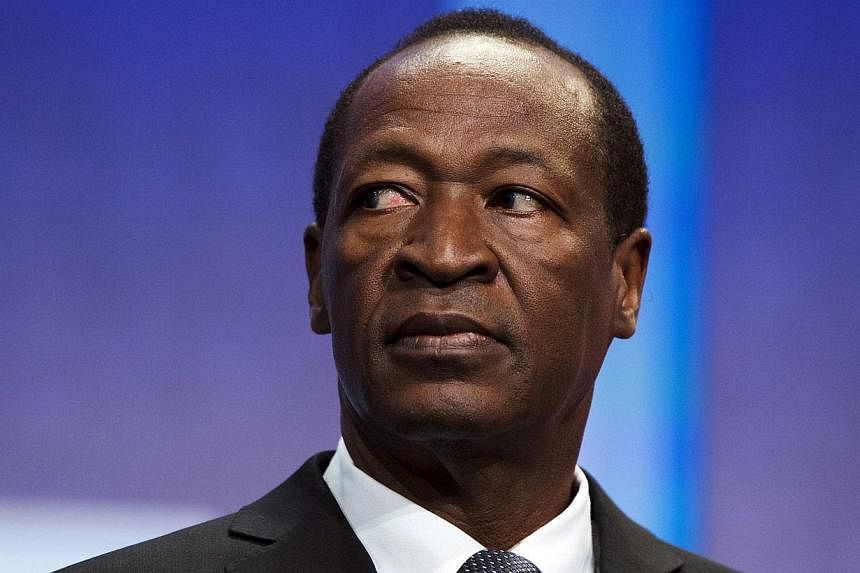OUAGADOUGOU (AFP/REUTERS) - Burkina Faso's embattled President Blaise Compaore announced on Friday that he was stepping down to make way for elections following a violent uprising against his 27-year rule that saw parliament set ablaze.
His resignation came as tens of thousands of protesters demanded that he quit immediately after a day of unrest that saw mass protests and the storming of parliament and other public buildings.
The country's armed forces chief General Honore Traore said on Friday that he had taken charge of the West African state after Compaore resigned.
A French diplomatic source who wished to remain anonymous later said Campaore had left the capital Ouagadougou and fled south, although he was still in the country.
Some have drawn a parallel between the protests and the Arab Spring revolution, and the situation is being closely watched across Africa where at least four heads of state are preparing or considering similar changes to stay in power.
"In order to preserve the democratic gains, as well as social peace... I declare a power vacuum to allow the establishment of a transition leading to free and fair elections within a maximum of 90 days," Compaore said in a statement read on local television.
News of Compaore's departure had initially come from an army officer hoisted on the shoulders of comrades in front of the army headquarters in Ouagadougou, the capital of the landlocked west African nation.
"Compaore is no longer in power," Colonel Boureima Farta told a crowd of thousands, who erupted into cheers.
Compaore had initially rejected calls to resign, prompting the demonstrators to gather outside the military base, chanting: "Blaise, get out!".
France's President Francois Hollande on Friday welcomed the resignation of his Burkina Faso counterpart and called for calm and restraint amid unrest in the former French colony.
The protests on Thursday forced Compaore to withdraw plans to try to change the constitution to extend his rule, although he had then vowed to stay in power for another year under a transitional government.
The protests started as lawmakers prepared to vote on legislation that would allow 63-year-old Compaore to contest elections in November 2015. They have plunged Burkina Faso into its worst crisis since a wave of mutinies shook the country in 2011.
Compaore was only 36 when he seized power in a 1987 coup in which his former friend and one of Africa's most loved leaders, Thomas Sankara, was ousted and assassinated. He has remained in power since, re-elected president four times since 1991 - to two seven-year and two five-year terms.
Compaore is one of a number of sub-Saharan African leaders who have stayed in power for decades. His bid to cling to power has angered many, particularly young people in a country where 60 per cent of the population of almost 17 million is under 25. Many have spent their entire lives under the leadership of one man and are disillusioned by the establishment running the poor former French colony which is stagnating at 183rd out of 186 countries on the UN human development index.
Some Burkinabe protesters have likened the protest to the Arab uprisings that began in 2010.
"October 30 is Burkina Faso's black spring, like the Arab spring," Emile Pargui Pare, an official from opposition party the Movement of People for Progress, told AFP earlier this week.
Burkina Faso's army chief had on Thursday made his own announcement that the government had been dissolved. The army imposed a dusk-to-dawn curfew and pledged to restore constitutional order within 12 months, in a statement signed by Nabere Honore Traore Thursday.
Opposition leaders gave the death toll from Thursday's violence as "around 30". AFP was only able to confirm four deaths and six seriously injured, based partly on reports from the capital's main hospital.
Envoys from the UN, the African Union and the Economic Community of West African States (ECOWAS) were expected Friday in Burkina.
Known in colonial times as Upper Volta, the landlocked country became independent from France in 1960 and its name was changed to Burkina Faso ("the land of upright men") in 1984.

